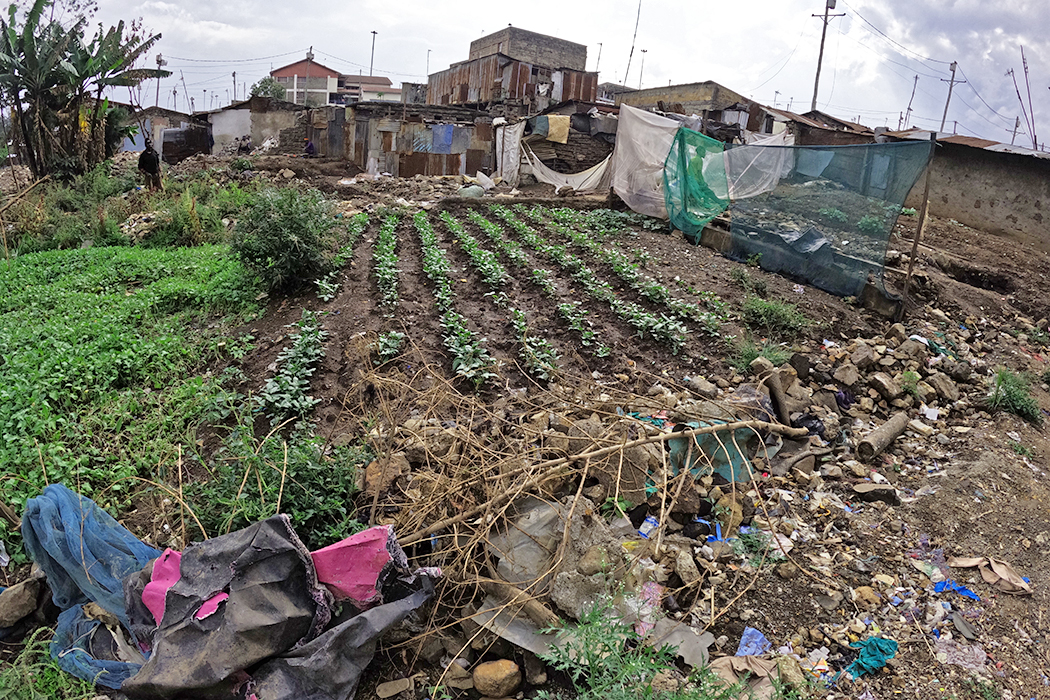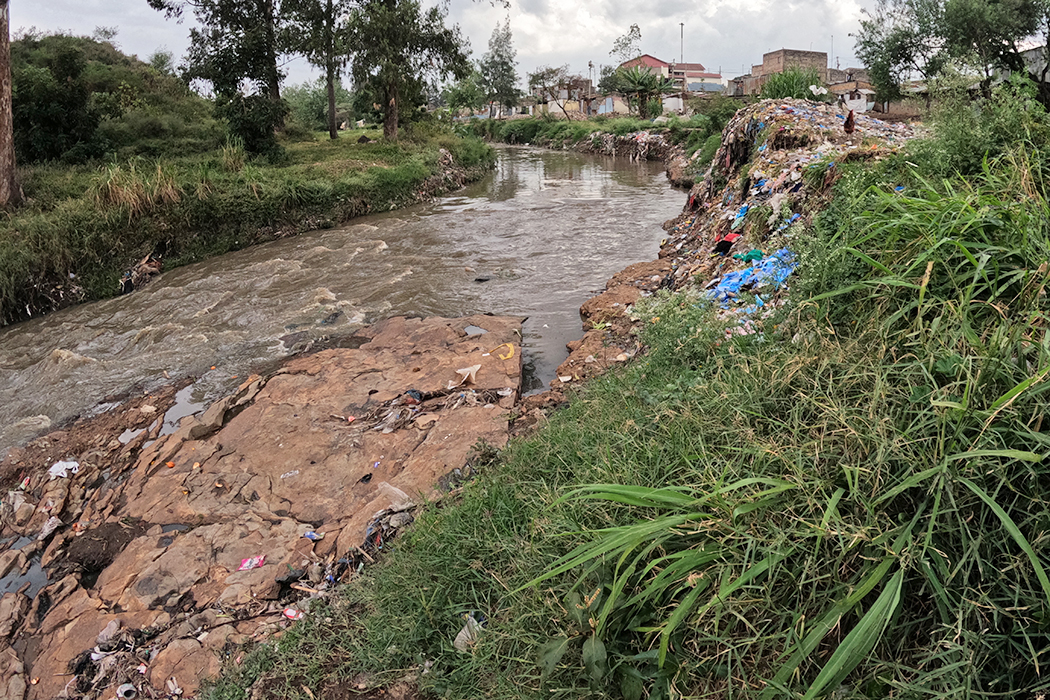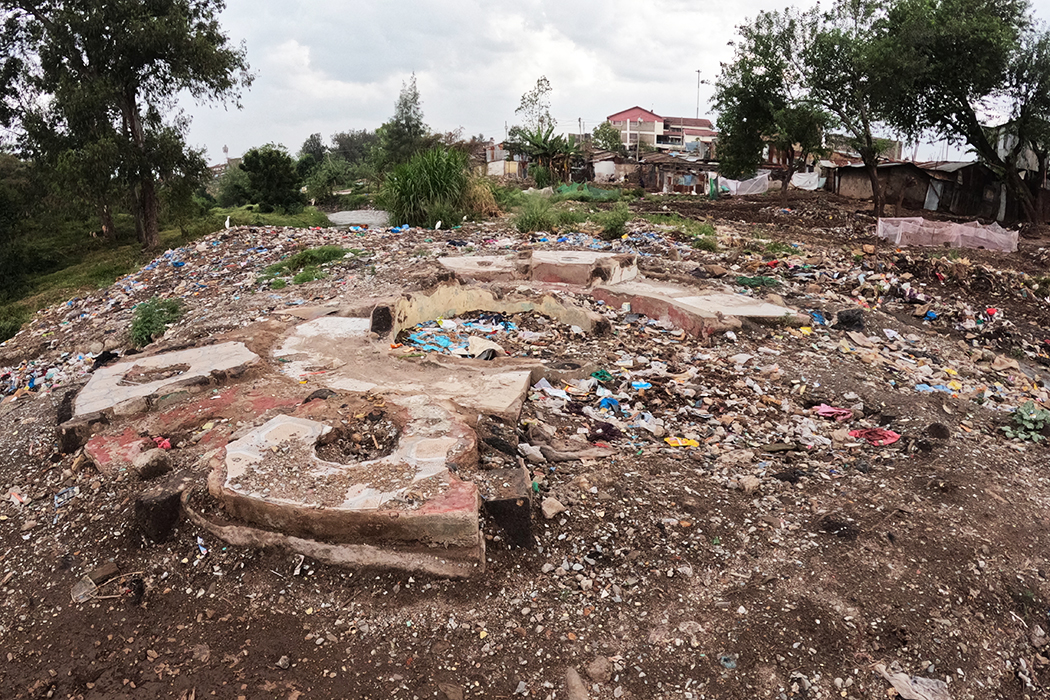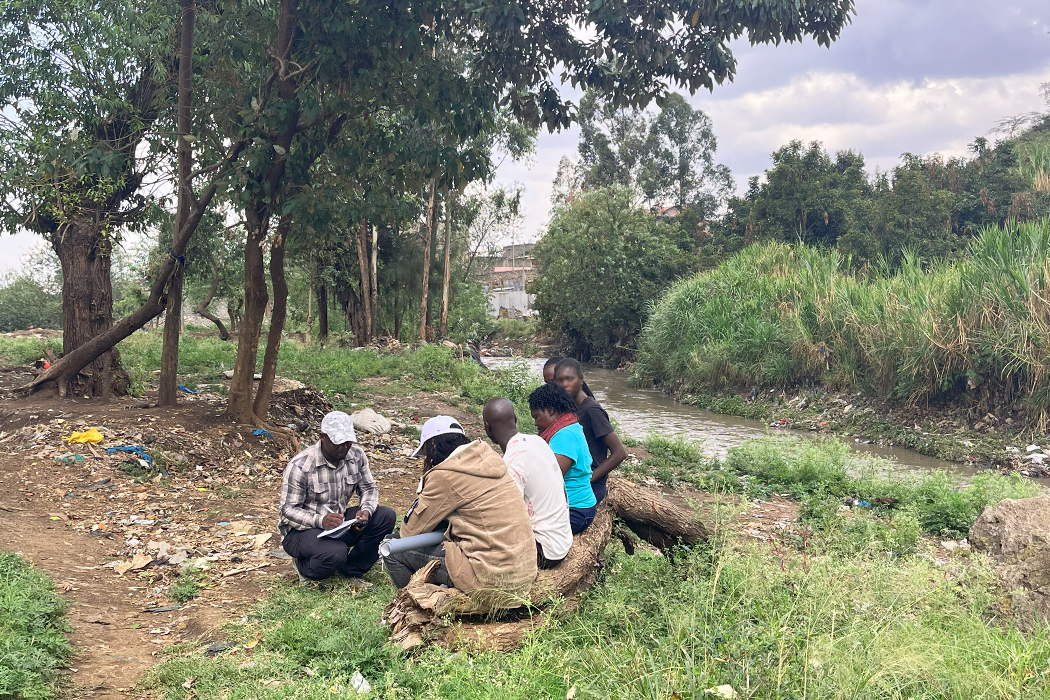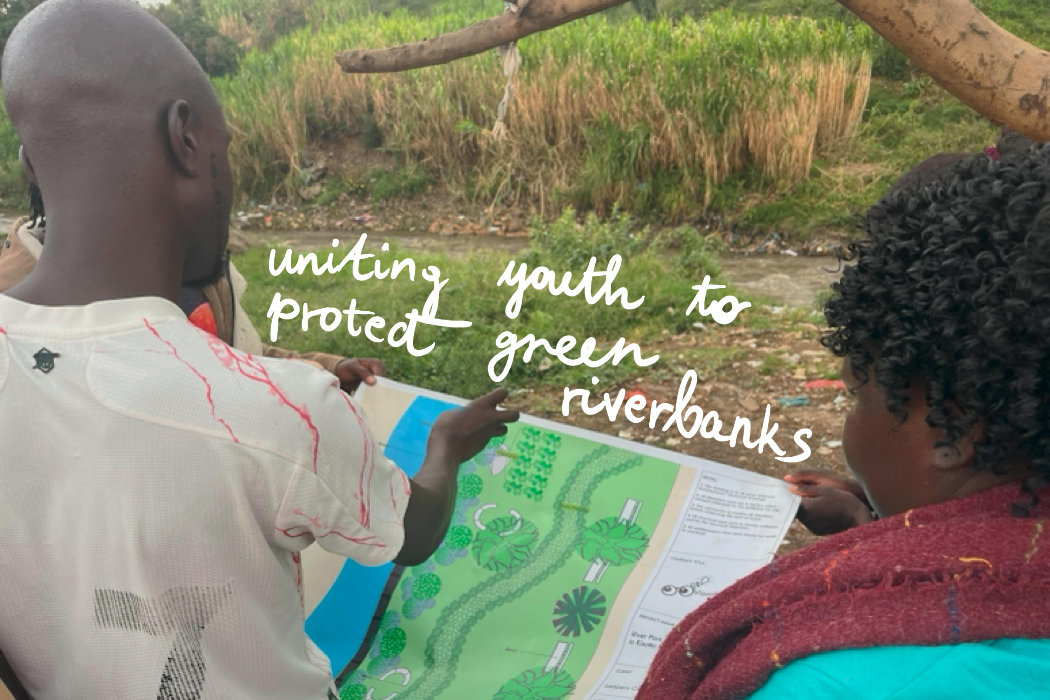
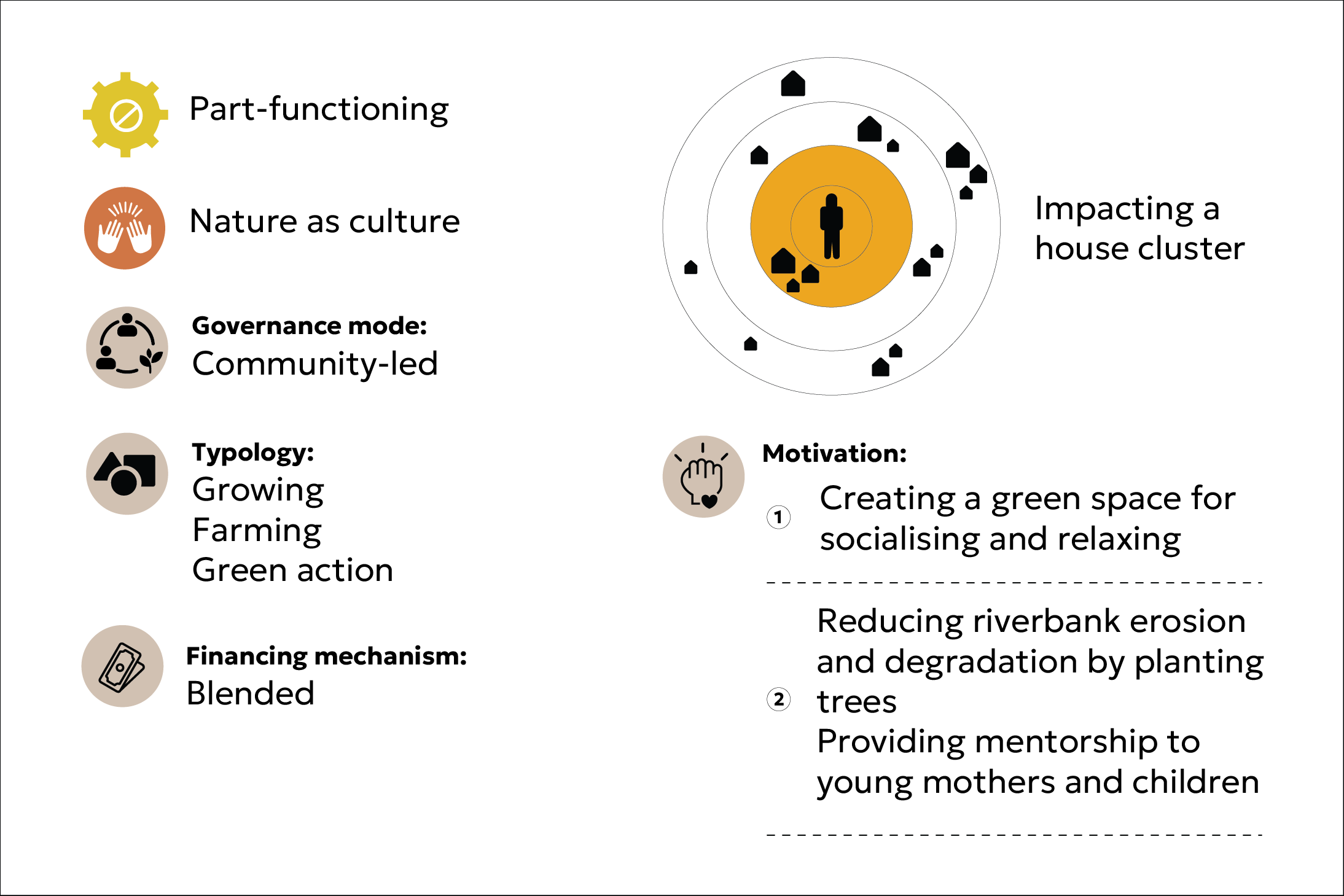
If you want to learn more, including how to support the initiative, visit their group page on Facebook.
Primarily composed of youth in their 20s and 30s, the group focuses on creating a safe haven for young mothers and children. The main driver is social: to create a secure and inclusive public space, linked to secondary environmental goals like preventing riverbank erosion through tree planting. They pursue this through cleanups and small-scale planting. Loopers have also drawn their long-term vision for a park along the riverbanks. While driven by high motivation to meet a clear community need, the initiative is significantly hampered by a lack of technical knowledge, formal organisation, and consistent leadership, as well as political interference. Their public WASH facilities and a hydroponic structure were demolished in 2024, through government action in the riparian zone.
Working towards justice:
This initiative represents a grassroots attempt at ecological action, bringing together youth who share a common social goal. It seeks recognition for the community’s fundamental need for safe public spaces, particularly for vulnerable groups like young mothers and children, and highlights the desire of youth to be positive contributors to their environment. The intended justice dimension is clear: to provide a safe, green recreational space, which is scarce in the informal settlement of Korogocho. The focus on the mentorship and support for young mothers and children aims to distribute the benefits of safety and well-being to those often most at risk in unsecured public areas. The actual impact of this group remains limited by the ongoing challenges.
The potential to benefit people and nature:
Although limited in its current ecological impact, the initiative’s core ambition is to use greening as a tool for creating social safety. This is a foundational principle of community-based environmental action. Their efforts to plant trees to address erosion, while not yet technically robust, demonstrate an intuitive understanding of using natural elements to solve a physical problem.
The group’s ambition to create a community park presents a major opportunity to integrate nature-based design that would benefit local biodiversity. With technical support, they could transform their vision into a “nature-play” park, using native plants and natural topography to create educational play zones. There is significant potential to enhance local food sovereignty through structured urban farming and to integrate water management solutions for irrigation and drainage.
